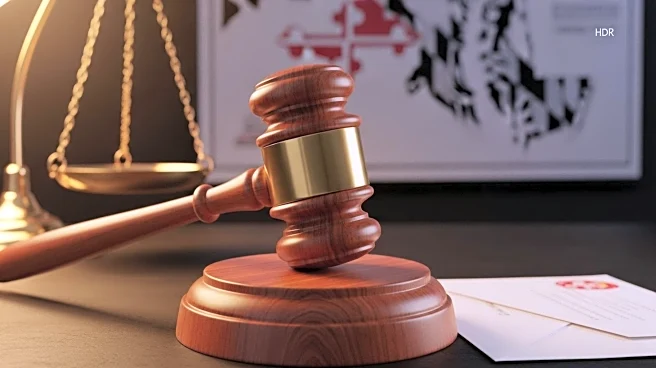What's Happening?
Maryland Governor Wes Moore has publicly responded to President Trump's criticism regarding crime in Baltimore. Moore emphasized his focus on fighting for his communities rather than engaging in conflict with the president. The exchange began after Trump suggested deploying the National Guard to Baltimore, which Moore rebuffed, inviting Trump to join him on a public safety walk instead. Moore highlighted Baltimore's progress in reducing crime, despite its reputation as one of the most violent cities in the U.S. Moore also addressed controversies surrounding his military record, which Trump has brought up in social media posts.
Why It's Important?
The ongoing dialogue between Moore and Trump underscores the tension between federal and state approaches to crime management. Moore's stance reflects a broader debate on the effectiveness of federal intervention in local crime issues. The situation also highlights the political dynamics at play, as Moore's rising national profile could influence future political landscapes. The controversy over Moore's military record adds another layer, potentially affecting public perception and trust in leadership.
What's Next?
Moore's approach suggests a continued focus on local solutions and community engagement in crime reduction efforts. The public exchange with Trump may lead to further political discourse on federal versus state roles in law enforcement. Moore's handling of his military record controversy may also impact his political trajectory and public support.
Beyond the Headlines
The clash between Moore and Trump may have implications for how political leaders address crime and public safety, potentially influencing policy decisions and public expectations. Moore's emphasis on community-focused strategies could inspire similar approaches in other states facing crime challenges.









